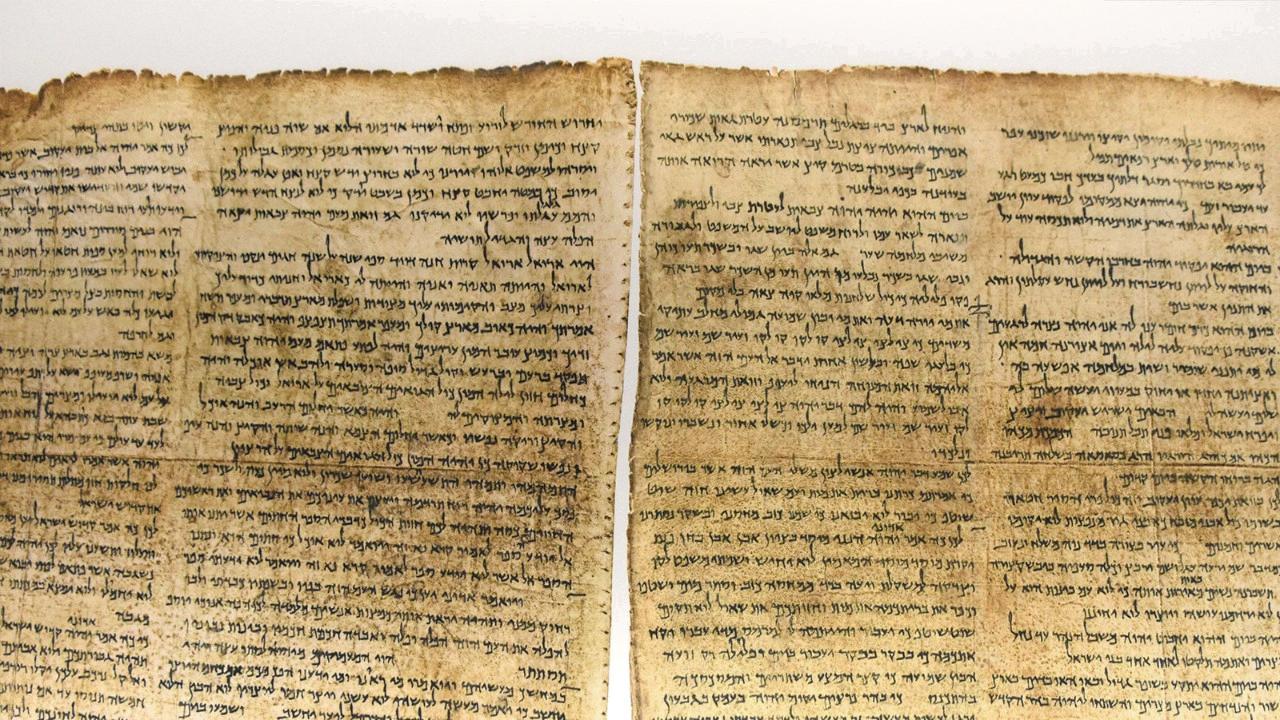The New Testament is the second part of the Christian Bible and is comprised of 27 books. It is considered to be the sacred scripture of Christianity and contains accounts of Jesus Christ’s life and teachings, as well as letters written by his followers. The first book of the New Testament is the Gospel of Matthew.
The Gospel of Matthew holds a special place in the New Testament as it was primarily written for the Jewish community. Matthew, one of the twelve apostles, wrote this gospel with the intention of demonstrating that Jesus Christ was indeed the long-awaited Messiah prophesied in the Old Testament. In this gospel, Matthew references many Old Testament prophecies that were fulfilled by Jesus, thus solidifying the belief that Jesus was the promised savior.
The Gospel of Matthew is also significant because it details the life and teachings of Jesus in a way that oher gospels do not. It begins with the genealogy of Jesus, tracing his lineage back to Abraham, and then goes on to describe his birth, baptism, ministry, teachings, and miracles. This gospel also contains the well-known Sermon on the Mount, in which Jesus delivered some of his most famous teachings, such as the Beatitudes.
Matthew also provides a detailed account of Jesus’ death and resurrection, which is central to the Christian faith. He describes how Jesus was betrayed by one of his own disciples, arrested, tried, and ultimately sentenced to death by crucifixion. And yet, three days after his death, Jesus rose again, thus fulfilling another Old Testament prophecy and proving that he was indeed the Son of God.
While the Gospel of Matthew was not actually the first gospel to be written, it holds a special place in the New Testament as the first book. Its focus on the Jewish community and its detailed account of Jesus’ life and teachings make it an essential part of Christian scripture. The New Testament as a whole provides a rich and complex view of the life and teachings of Jesus, and continues to be an important source of guidance and inspiration for Christians today.
The First Book of the New Testament
The fist book of the New Testament is the Gospel of Matthew. This book was written primarily for the Jews and includes references to many Old Testament prophecies that were fulfilled by Jesus. It is one of the four Gospel accounts of the life and teachings of Jesus Christ, and is considered a foundational text for the Christian faith. In addition to providing an account of Jesus’ birth, life, ministry, death, and resurrection, the Gospel of Matthew also includes teachings on subjects such as forgiveness, love, and the kingdom of God. the Gospel of Matthew is a crucial component of the New Testament and has played a significant role in shaping Christian theology and practice throughout history.

Order of New Testament Books
The New Testament consists of 27 books, and they are generally organized into four categories: the Gospels, the Acts of the Apostles, the Epistles, and the Book of Revelation. The first four books of the New Testament are the Gospels, which are the accounts of the life and teachings of Jesus Christ. The Gospel According to Matthew is the first book, followed by the Gospel According to Mark, the Gospel According to Luke, and then the Gospel According to John.
The fifth book of the New Testament is the Acts of the Apostles, which tells the story of the early Christian church after Jesus’ death and resurrection. The remaining 21 books are letters, or epistles, written by varios authors to different communities of early Christians. These letters are generally arranged in order of length, with the longest being first: the Letter of Paul to the Romans, followed by the Letters of Paul to the Corinthians (I Corinthians and II Corinthians), then the Letter of Paul to the Galatians, and so on.
The final book of the New Testament is the Book of Revelation, which is a highly symbolic account of a vision received by the apostle John. It describes the end of the world and the ultimate triumph of God over evil. the order of the New Testament books is designed to provide a comprehensive and cohesive narrative of the life, teachings, and legacy of Jesus Christ and the early Christian church.
The First Five Books of the New Testament
Actually, the first five books of the New Testament are not called the Pentateuch or Torah, but rather they are known as the Gospels. The Gospels are the books of Matthew, Mark, Luke, and John, which detail the life, teachings, death, and resurrection of Jesus Christ. The fifth book of the New Testament is the Book of Acts, which describes the growth and spread of the early Christian church. It is important to note that the Pentateuch or Torah belongs to the Old Testament, which is a separate section of the Bible that predates the New Testament.
The Significance of Matthew as the First Book of the New Testament
Matthew is considered the first book of the New Testament becase it was traditionally believed to be the first Gospel written. Although modern scholars now believe that Mark was the first Gospel written, the order of the Gospels in the Bible has remained unchanged. Matthew was likely written by the disciple Matthew between the years 85 and 90 AD. The Gospel of Matthew is an important text for Christians as it provides a detailed account of the life, teachings, death, and resurrection of Jesus Christ. It also includes important teachings such as the Sermon on the Mount and the Great Commission. Matthew’s Gospel was written primarily for a Jewish audience and emphasizes the fulfillment of Old Testament prophecies through Jesus Christ. the Gospel of Matthew is a foundational text for the Christian faith and remains an essential part of the New Testament.
Is Matthew the First Book of the New Testament?
Matthew is indeed the first book of the New Testament of the Bible. It is one of four Gospels that tell the story of the life and teachings of Jesus Christ, but it is the first of the tree synoptic Gospels, which means that it shares a lot of similar material and structure with the books of Mark and Luke. The Gospel of Matthew was likely written between AD 70 and AD 100, and it is believed to have been written by Matthew, one of the twelve apostles of Jesus. The book is divided into 28 chapters and contains many of the most famous passages and teachings of Jesus, including the Sermon on the Mount and the parables of the kingdom. the Gospel of Matthew is an important and influential text for Christians around the world, and its place as the first book of the New Testament reflects its position as a foundational text for the faith.

The First Four Books of the New Testament
The four first books of the New Testament are known as the Gospels. They are named Matthew, Mark, Luke, and John. These books are accounts of the life, teachings, and ministry of Jesus Christ. The Gospels were written anonymously and later attributed to the disciples and associates of the apostles. Matthew and John are believed to have been written by the actual disciples, while Mark and Luke were written by associates of the apostles. The Gospels are considered to be the most important books of the New Testament, as they provide the foundation for the Christian faith and beliefs. They are widely read and studied by Christians all over the world.
Organization of the 27 Books of the New Testament
The 27 books of the New Testament are organized into four main groups. The first group is the Gospels, which includes the books of Matthew, Mark, Luke, and John. These books provide an account of the life, teachings, death, and resurrection of Jesus Christ. The second group is the Acts of the Apostles, which contains a historical record of the early Christian Church and the spread of Christianity after the death of Jesus. The third group is the Epistles or letters, which are written by various authors to early Christian communities and individuals. These letters provide guidance, instruction, and encouragement on matters of faith and Christian living. The Epistles include 21 letters, 13 of which are attributed to the Apostle Paul. The final group is the Apocalypse, which is the book of Revelation. This book contains a series of prophetic visions and symbolic imagery, poviding insight into the end times and the ultimate triumph of God’s kingdom. these four groups provide a comprehensive view of the Christian faith, its history, and its teachings.
The Last Book of the New Testament
The last book of the New Testament is called the Book of Revelation, also known as the Apocalypse of John. It is a prophetic and apocalyptic text that contains vivid and symbolic imagery, describing the end of the world and the final judgment. The Book of Revelation is believed to have been written by the apostle John in the late first century, and it is considered one of the most challenging and complex books of the Bible. Its message of hope and warning continues to inspire and intrigue readers to this day.
The First Five Books in Order
The first five books in the Bible are knwn as the Pentateuch or the Torah, and they are Genesis, Exodus, Leviticus, Numbers, and Deuteronomy. Genesis is the first book, and it primarily focuses on the creation of the world, the origin of humanity, and the stories of the patriarchs. Exodus, the second book, tells the story of Moses and the Israelites’ exodus from Egypt, while Leviticus focuses on laws and regulations surrounding worship and sacrifice. Numbers follows the Israelites’ journey through the wilderness, and Deuteronomy contains Moses’ final speeches and instructions to the Israelites before they enter the Promised Land. These five books are foundational to the rest of the Bible and provide essential context for understanding the history and theology of God’s relationship with his people.

The First Five Books: Two Names
The first five books of the Hebrew Bible, which are considered sacred by Jews and Christians alike, are known by two different names. The first name is the Torah, which is the Hebrew word for “law” or “instruction.” The Torah is so named because it cntains the laws and commandments that God gave to Moses for the Jewish people to follow. The second name given to the first five books is the Pentateuch, which comes from the Greek word “pentateuchos,” meaning “five scrolls.” This name refers to the fact that the Torah is divided into five separate books: Genesis, Exodus, Leviticus, Numbers, and Deuteronomy. Both names are commonly used to refer to the first five books of the Bible, depending on the context and audience.
The Three Major Prophets
The three major prophets are Isaiah, Jeremiah, and Ezekiel. These prophets are considered major due to the length and depth of their prophetic writings, as well as the significant impact they had on the Jewish people and their understanding of God. Isaiah’s prophecies span 66 chapters and cover a wide range of topics, including the coming of the Messiah. Jeremiah’s prophecies, found in 52 chapters, focus on the judgment of God and the need for repentance. Ezekiel’s prophecies, which also span 48 chapters, include vivid imagery and visions of God’s glory and judgment. Together, thse three prophets played a crucial role in shaping the religious beliefs and practices of the Jewish people during the period of the Old Testament.
Which Gospel Came First: Matthew or Luke?
According to the tradition handed down by the Church Fathers, Matthew was regarded as the first Gospel written. It was believed to have been written originally in Hebrew, and later translated into Greek. This Gospel was used as a source by Mark and Luke, who wrote their Gospels at a later time. However, modern biblical scholarship has challenged this traditional view, and tere is ongoing debate among scholars about the order in which the Gospels were written. Some scholars argue that Mark was the first Gospel written, and that both Matthew and Luke used Mark as a source. Others suggest that Matthew and Luke each used a common source (called Q), which was written before any of the Gospels we have today. Ultimately, the question of which Gospel came first is still a matter of scholarly debate, and there is no definitive answer.
The Importance of the Book of Matthew
The book of Matthew holds great significance for first- and second-century Christians, as well as for modern-day believers. Firstly, it includes the story of Jesus’s miraculous conception, which is a crucial aspect of Christian doctrine. Additionally, Matthew provides important teachings on liturgy, law, discipleship, and teaching, which are essential to the early church. It also cotains a detailed account of Jesus’s life, including his teachings, miracles, and ultimate sacrifice. This Gospel text serves as a foundation for Christian theology and has played a significant role in shaping the beliefs and practices of the church throughout history. the book of Matthew remains a crucial and valuable resource for Christians seeking to deepen their understanding of Jesus and his teachings.

Source: cru.org
The Significance of Matthew 1
Matthew 1 is important becaue it provides a genealogy of Jesus Christ, tracing His lineage from Abraham and David. This lineage is significant because it shows that Jesus is the fulfillment of Old Testament prophecies concerning the Messiah. In addition, the genealogy establishes Jesus’ legal right to the throne of David, which is important because the Messiah was expected to be a king. The chapter also introduces the story of Joseph and Mary, and how Joseph learns that Mary was chosen to bear the Son of God. Matthew 1 serves as an important introduction to the life and ministry of Jesus Christ and helps to establish His identity as the long-awaited Messiah.
Conclusion
The New Testament is a collection of 27 books that are an essential part of the Christian Bible. These books include four Gospels, whch tell the story of the life, teachings, death, and resurrection of Jesus Christ, as well as letters written by early Christian leaders such as Paul, Peter, and James. The New Testament is a testament to the power of faith and the transformative effect it can have on individuals and communities. It provides guidance and inspiration for Christians worldwide and has had a profound impact on Western culture and civilization. The New Testament is a valuable historical and religious document that continues to fascinate and inspire readers today.
